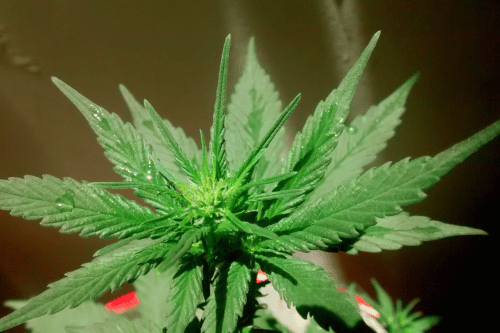

Cannabis-derived compounds like THC and HHC offer unique psychoactive effects and therapeutic benefits. While both come from the cannabis plant, their chemical structure and pharmacological activity differ. Understanding their effects, legal status, and potential benefits can help users make informed choices in the cannabis marketplace.
THC, or delta-9 THC, is one of the most abundant cannabinoids found in the cannabis sativa plant. Its molecular structure contains a ninth carbon atom, which allows it to bind effectively to CB1 cannabinoid receptors in the brain, producing a euphoric feeling. This interaction with endocannabinoid receptors triggers various psychoactive properties and therapeutic potential.
As a psychoactive compound, Delta 9 affects mood, perception, and cognition. It can induce euphoric feelings, relaxation, and appetite stimulation. However, it also has common side effects, including dry mouth, dizziness, increased heart rate, and undesired side effects like paranoia in higher doses.
THC products are widely used for pain relief, chronic pain management, and as part of drug treatment programs. Medical professionals often recommend THC for appetite stimulation, nausea reduction, and its therapeutic properties in treating anxiety and insomnia.
THC faces strict legal restrictions in many regions. It is federally illegal in the U.S. but permitted for medical and recreational use in some states. The cannabis industry continues to advocate for broader legalization due to the beneficial effects of THC in healthcare.
HHC (Hexahydrocannabinol) was first discovered by Roger Adams in the 1940s when he added hydrogen atoms to delta-9 THC in a process called hydrogenation. This modification changes its molecular formula, making it more stable with a longer shelf life compared to THC.
HHC is a natural cannabinoid found in small amounts in the cannabis plant, but most HHC products are synthesized from hemp-derived CBD. Users report milder effects than THC, with potential benefits such as pain relief, stress reduction, and mild psychoactive properties. However, research on long-term health effects is still limited.
HHC exists in a legal gray area since it is derived from hemp plants rather than marijuana. It is often sold in states where THC products are restricted. However, some states have begun regulating or banning hemp-derived cannabinoids, including Delta-8 Products and Delta-10 Products.

THC is highly psychoactive, producing stronger effects due to its direct binding to CB1 receptors. HHC has weaker CB1 cannabinoid receptor signaling, resulting in milder effects and fewer adverse effects like paranoia or anxiety.
Both cannabinoids offer therapeutic benefits, but THC is better studied and widely used for chronic pain and nausea. HHC may appeal to those seeking benefits of cannabinoids without intense psychoactive effects.
User preferences vary—some favor THC for its stronger effects, while others choose HHC for its gentler impact and reduced risk of undesired side effects.
THC can cause dry mouth, dizziness, increased heart rate, and psychoactive effects such as paranoia. High doses may intensify these potential side effects.
HHC has similar but milder effects, including dry mouth, slight dizziness, and potential nausea. As a synthetic cannabinoid, concerns exist about heavy metals or contaminants in poorly regulated cannabis products.
Both compounds interact with cannabinoid receptor CB1, but HHC’s complex after CB1R stimulation results in milder effects. While THC has been extensively studied, research on (9R)-HHC administration and long-term health effects is still developing.
If you need strong pain relief, Delta 9 THC may be more effective. If you prefer milder effects with fewer adverse effects, HHC could be a better alternative.
Start with a low dose and increase gradually. Medical professionals advise checking legal restrictions and product quality before using Hemp and Cannabis Products.
Yes. Standard drug tests screen for delta-9 THC metabolites, and HHC products may trigger similar results due to their interaction with cannabinoid receptors.
THC is federally illegal but allowed in some states. HHC’s legal status depends on state regulations regarding hemp-derived products.
HHC is synthesized from hemp-derived CBD through hydrogenation, which modifies its chemical compounds. THC is extracted from the sativa plant or produced as a synthetic cannabinoid.
Yes, some users mix them to balance psychoactive properties and therapeutic benefits, but combining them may increase potential side effects.
Both THC and HHC have unique therapeutic potential and applications. Your choice depends on individual health goals, legal restrictions, and tolerance for psychoactive effects. Always consult a professional before using hemp-derived cannabinoids or exotic cannabinoids in the evolving cannabis industry.

At Sullivan Recovery, as an in-network provider we work with most insurance plans, such as:
And More
If you or a loved one are struggling with mental health challenges or substance abuse, reach out to Sullivan Recovery today. Our team of compassionate professionals is here to support your journey towards lasting well-being. Give us a call at 949-836-7180.
HHC and THC both interact with CB1 cannabinoid receptors, but their psychoactive properties differ. Delta-9 THC is known for its strong euphoric feeling, while HHC produces milder effects. THC binds directly to cannabinoid receptor type CB1, leading to more intense psychoactive experiences. HHC, on the other hand, has a weaker affinity for CB1 receptors, resulting in a more subtle high with reduced risk of undesired side effects like paranoia or anxiety.
Yes, both HHC and THC can appear on drug tests. Most standard drug tests screen for THC metabolites, which means delta-9 THC is highly detectable. HHC is a hydrogenated form of THC and may break down into similar compounds that trigger a positive result. Since research on (9R)-HHC administration is limited, users should assume that consuming HHC could also lead to a failed test. If passing a drug test is essential, avoiding hemp-derived cannabinoids like HHC and THC is the safest option.
HHC is typically produced through a chemical process known as hydrogenation, where hydrogen atoms are added to delta-9 THC or hemp-derived CBD. This process, first discovered by Roger Adams, alters the molecular formula, making HHC more stable and increasing its shelf life. THC, on the other hand, is naturally found in the cannabis sativa plant and extracted directly from hemp plants or marijuana. Because HHC is often synthesized, it is considered a synthetic cannabinoid, whereas Delta-9 THC is a natural cannabinoid abundant in cannabis.
The legal status of HHC products is unclear and varies by state. Since HHC is derived from hemp-derived products, it may be considered legal under the 2018 Farm Bill, which legalized hemp plants and their derivatives. However, some states have moved to ban hemp-derived cannabinoids, including Delta-8 Products and Delta-10 Products. THC products, specifically Delta-9 THC, remain federally illegal but are permitted for medical and recreational use in several states. Before purchasing or using cannabis products, it’s essential to check legal restrictions in your area.